The Chinese built a railroad to Tibet
Categories: Asia
By Pictolic https://pictolic.com/article/the-chinese-built-a-railroad-to-tibet.htmlIn just five years and three and a half billion dollars in China built a line length of 1,150 kilometers, linking the "roof of the world" with the main territory of the country.
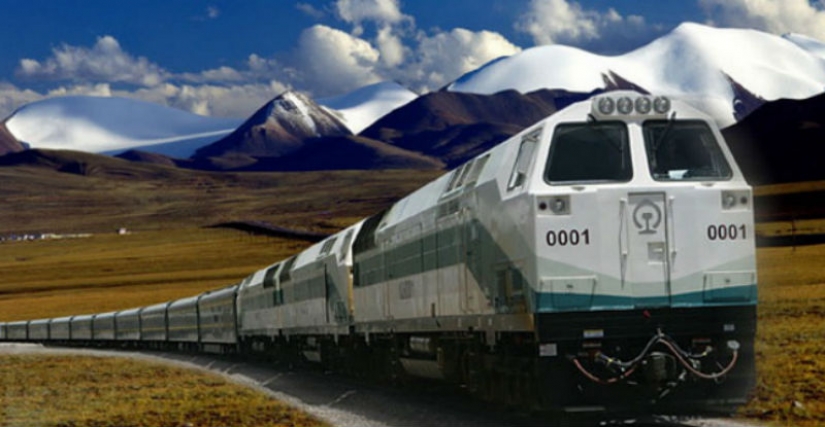

In the early 1920s the revolutionary sun Yat-sen in his keynote "the Plan for the reconstruction of China" has proposed to build in the country about 100 000 kilometers of new Railways, among whom was the line on the Tibetan plateau. For objective reasons, to the idea of "father of the nation" were able to return only in 1950-e years under Chairman Mao. The railway project in the capital of Tibet, Lhasa was approved by 1960, however, its construction was frozen for almost a decade and a half China hardly reaped the fruits of the "Great leap forward".
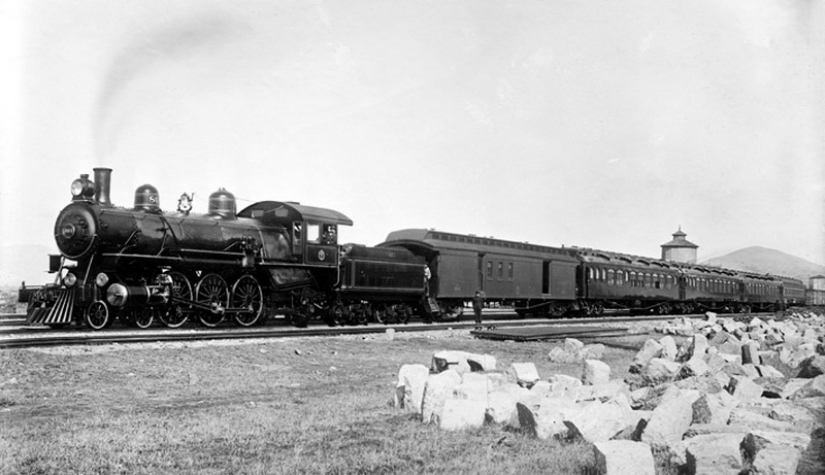
Only in 1974 the construction of the first section of the future highway, from the capital of Qinghai province Xining to Golmud already on the Tibetan plateau, was resumed. 814 kilometers of Railways by the army and prisoners built in the five years to 1979, but passenger traffic was opened here in 1984.
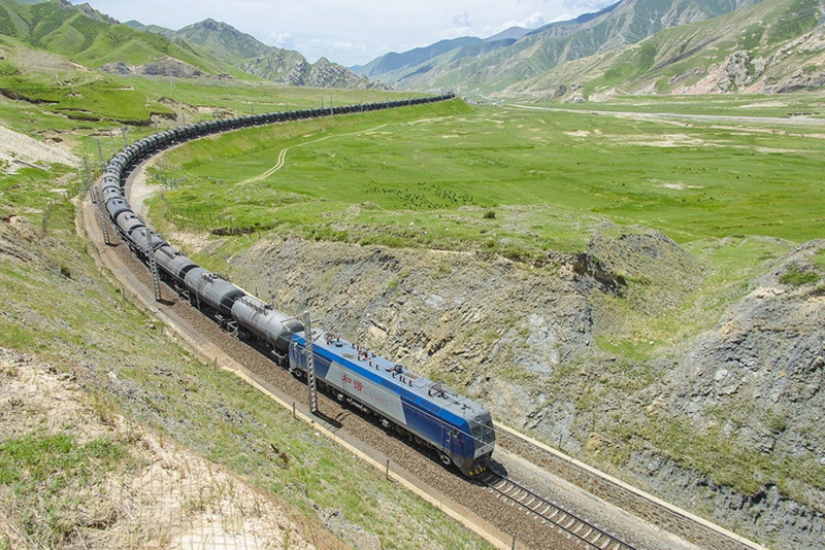
Work on the second, high elevation of land to Lhasa was connected with the engineering task of special difficulty: the builders had to work in conditions of permafrost, lack of oxygen and also the unique Tibetan ecosystem, the preservation of which was announced by the Chinese party and government is a matter of paramount importance.
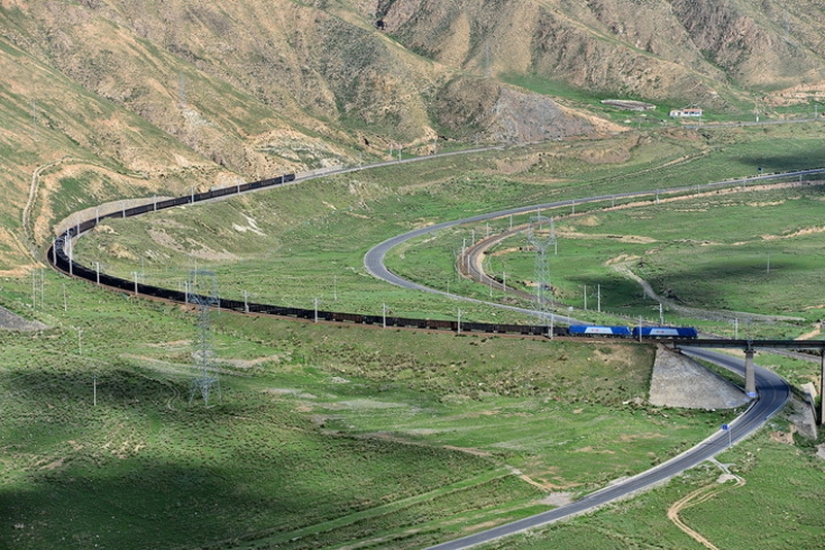
Only in the beginning of the XXI century, the country reached the level of technological readiness, which allowed us to begin to implement large-scale infrastructure project. Moreover, the construction of the railway to Lhasa has become a key stage of the development program of Western China, the purpose of which is to eliminate disproportions in the development of Eastern and Western regions of the country. Another important, and perhaps primary, objective of Chinese government was to strengthen the ties of Tibetan autonomy, control over which was re-established only in 1950, with the main Chinese territory.
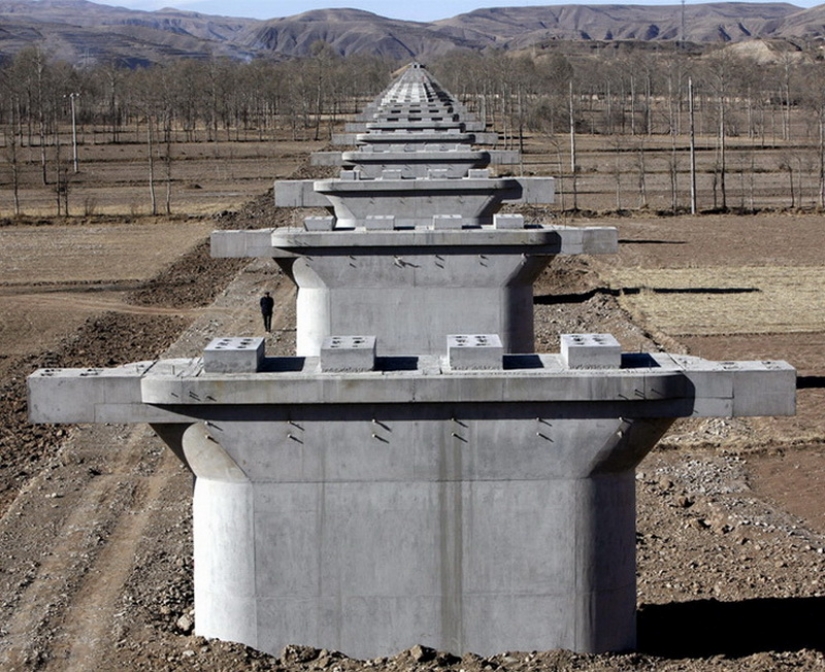
Under the project, approved in 2000, Chinese President Jiang Zemin, the total length of the new railroad was to be 1142 miles. This plot was organized by 45 stations, 38 of which were automatic, without staff. Tibet highway from Golmud up to a height of 2800 meters above sea level to the pass of Tang-La (5072 meters) and then again descended to Lhasa (3642 m).
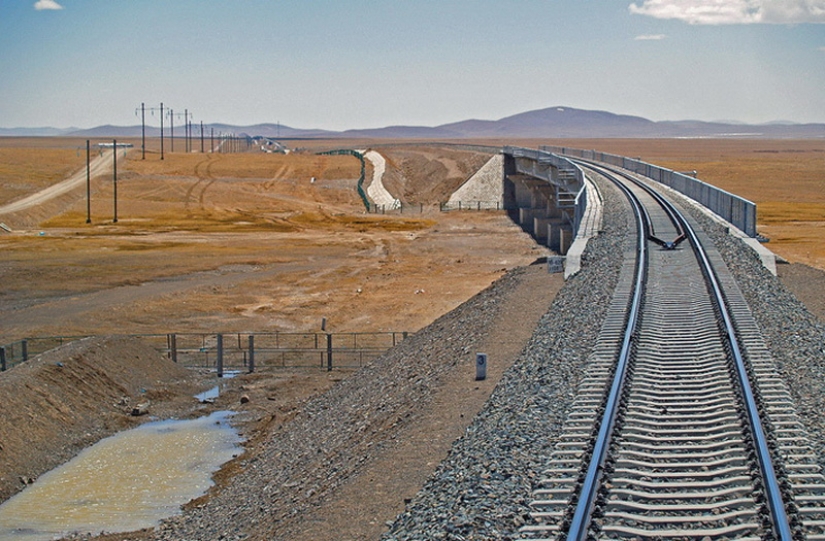
Station Of Golmud.
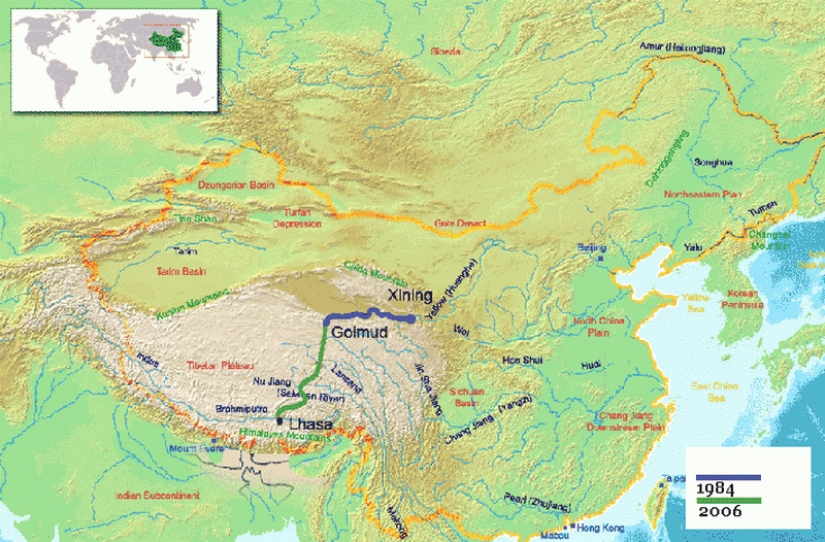
The ultimate terminal in Lhasa.
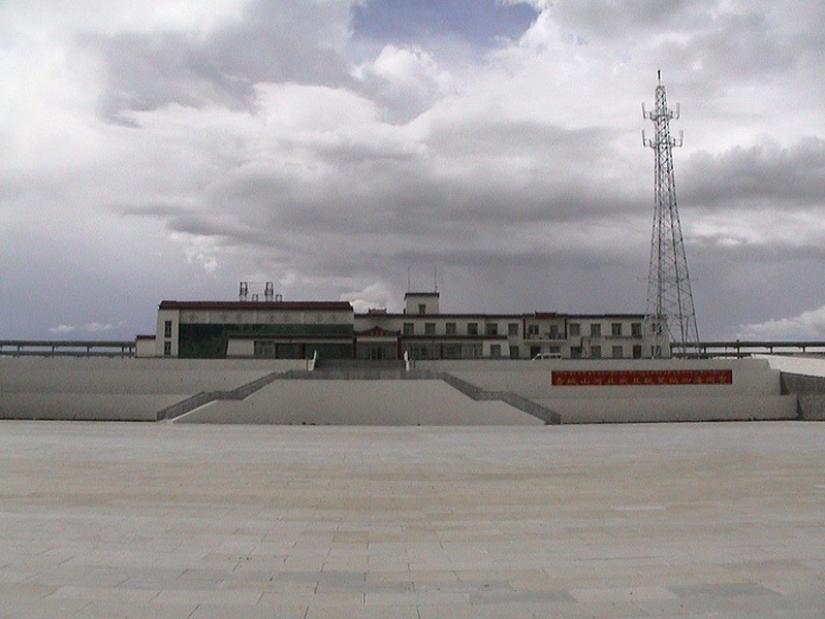
About 80% of all new footage (960 kilometers) took place in rugged mountainous areas at an altitude of over 4000 meters above sea level, about 550 kilometers were located in the permafrost zone.
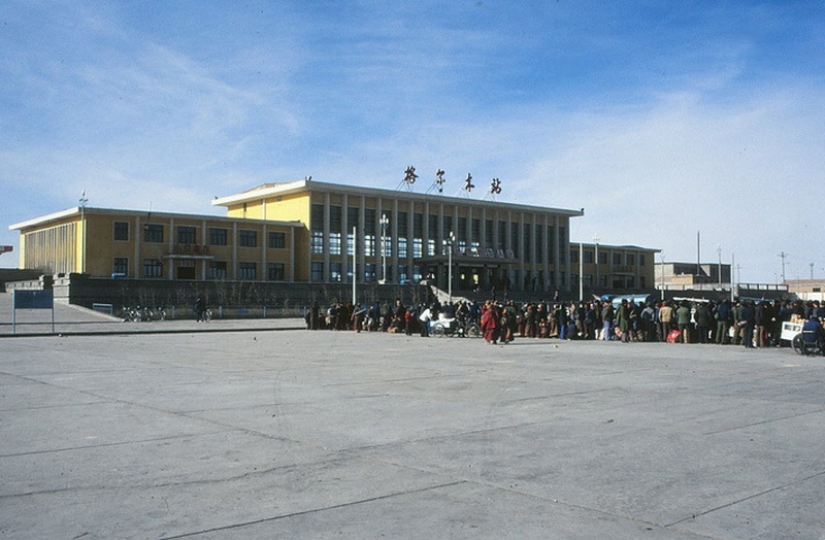
The construction of the railway there is a serious engineering problem. The fact that the top layer of permafrost has the property in brief summer thaw, sometimes becoming impassable swamp. Therefore, the real threat is to move the soil that could lead to deformation and destruction of a way. In order to eliminate this risk, the designers of the Qinghai-Tibet road has developed a special scheme of its devices, effectively isolating any impact of the highway on the environment and Vice versa.
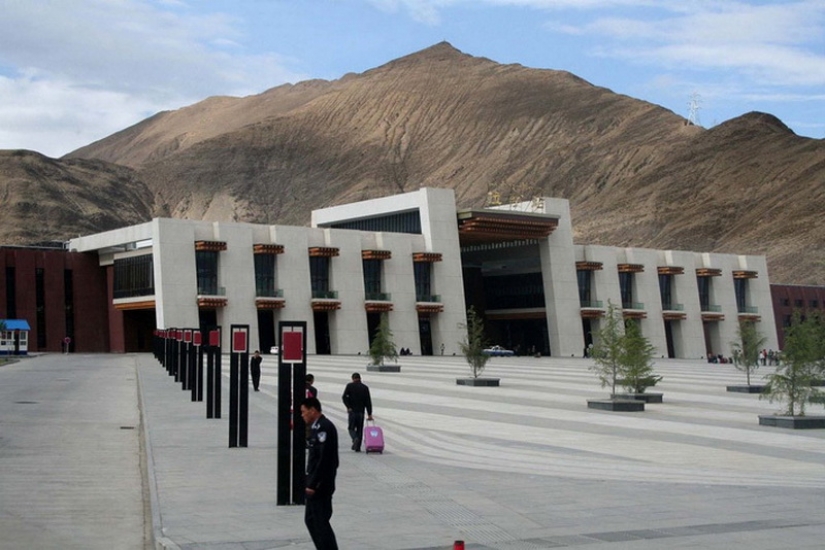
Rails were laid on a special mound of stones, covered with sand layer. In the transverse projection of the mound pervariabilis through a network of pipes to ensure the best ventilation, and the slopes were closed with special metal sheets, reflecting sunlight and thereby further prevent its heating.
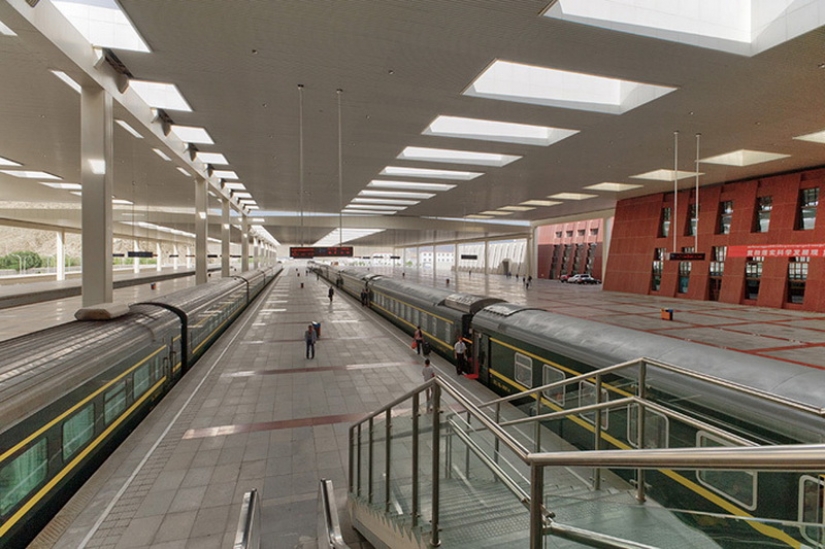
In some areas it got more and wells filled with liquid nitrogen. All of these activities were actually frozen under the road embankment, preventing heating of the upper layer of permafrost, its thawing and subsequent deformation of the railway.
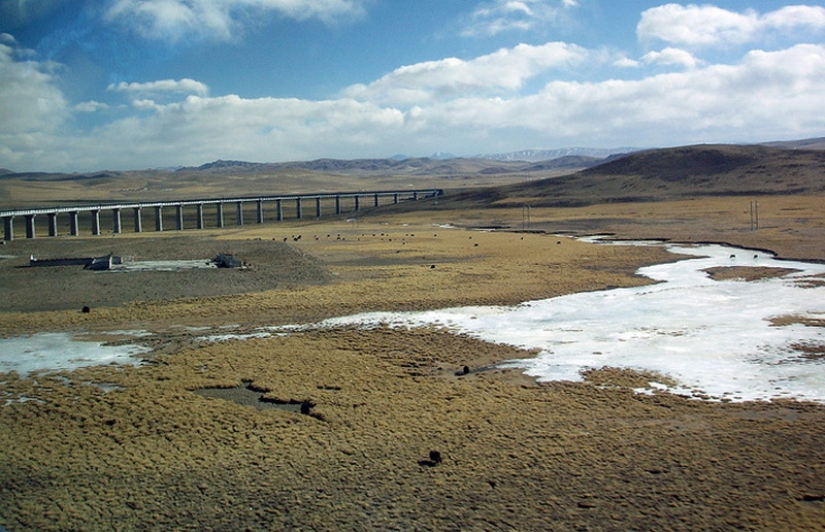
To compensate for variations in heights of the areas a significant part of the pipeline rests on the racks. Total 1142 kilometers arranged 675 bridges with a total length of 160 kilometers. Support these overpasses are essentially piles, which are buried deep in the permafrost, making the seasonal thawing of the upper layer have no effect on the stability of the construction.
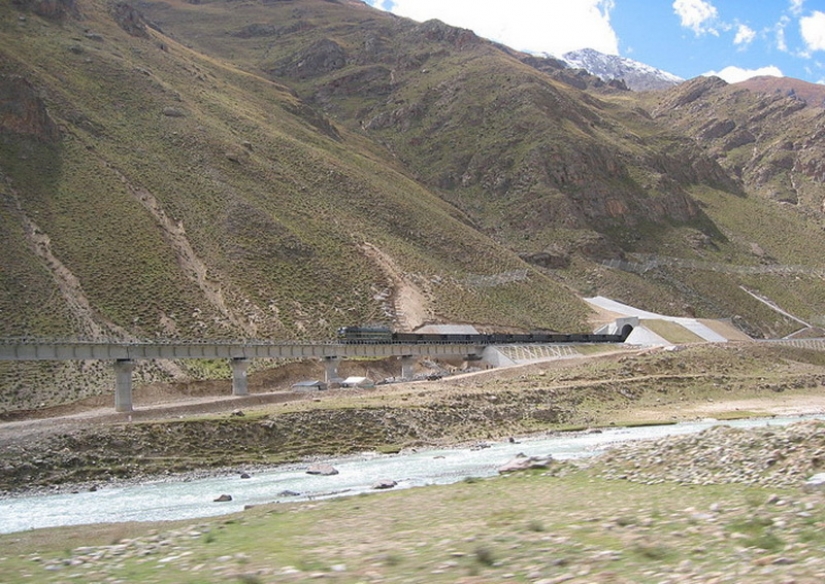
The gaps between the pillars-pillars do not hinder the free circulation of air under them, which minimizes additional heat effect from the railroad.
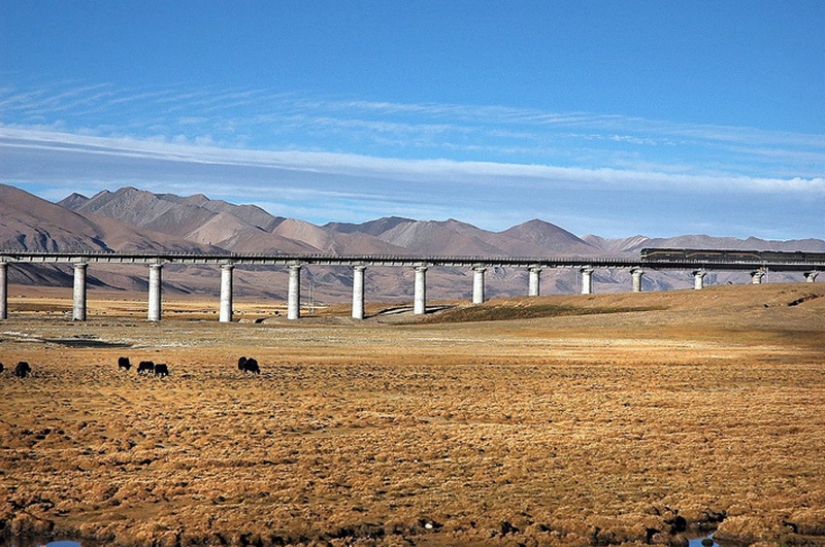
In addition to the technical component, an important advantage of elevated sites is the fact that they do not hinder the free movement under the bridge sometimes unique local fauna. The negative effect of contaminants in the Tibetan ecosystem is reduced thus to a minimum.
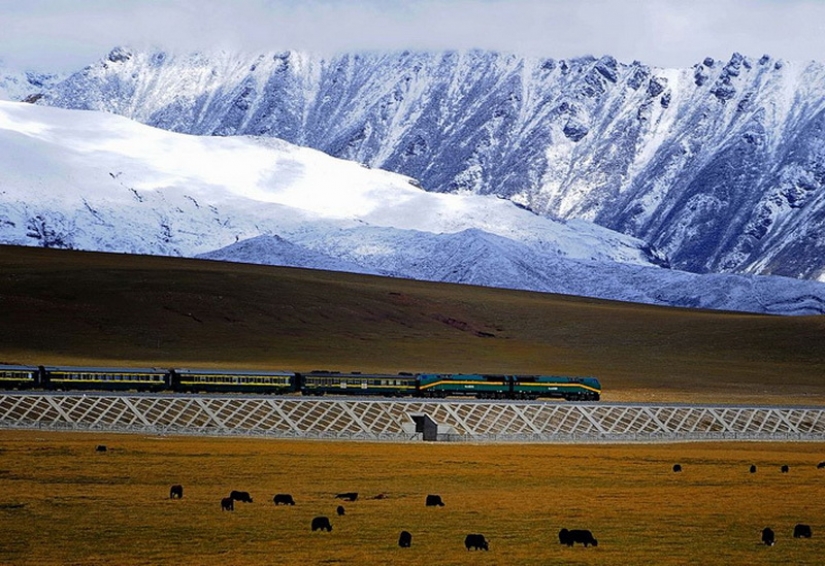
Areas of the Qinghai-Tibet road, laid on a mound on the earth's surface, is fenced throughout, and for transition of migrating animals regularly laid special tunnels and bridges built.
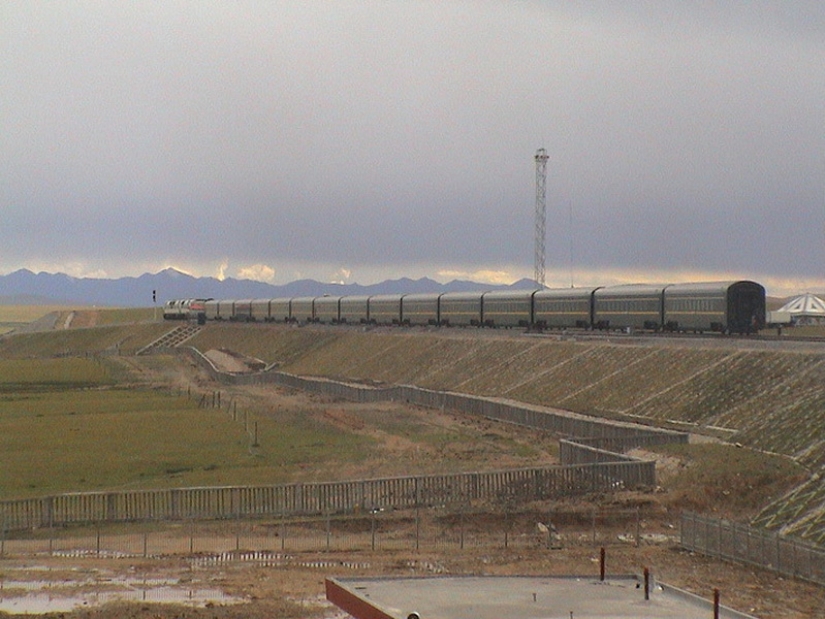
After the construction of the Tibet highway has set a number of records of railway construction. 350 kilometers from Golmud at the height of 4900 meters above sea level was built the highest railway tunnel in the world, dubbed Panchoshny (tunnel wind volcano)
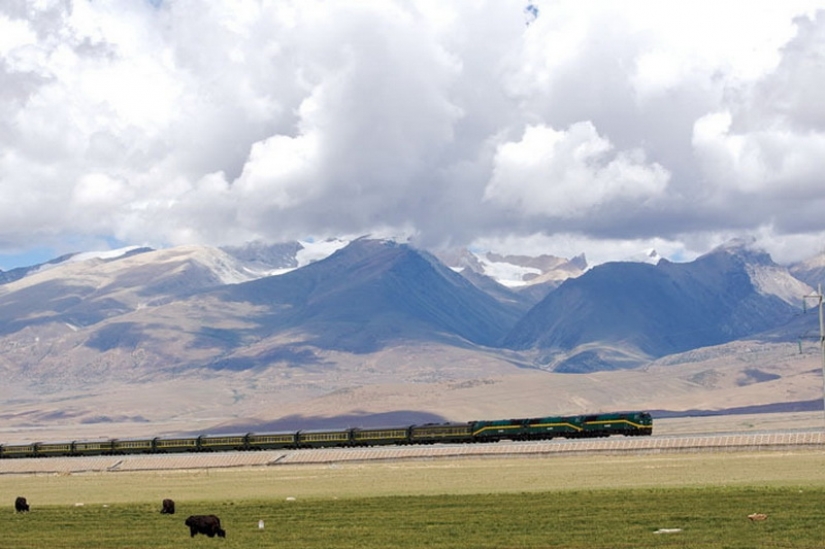
Station same Tang-La on the homonymous mountain pass, was the highest-altitude railway station in the world. The surrounding mountains seem rather hills, but this is misleading. In fact, sections Tang-La is located at the altitude of 5068 meters and only four meters below the highest point of the entire highway (5072 meters).
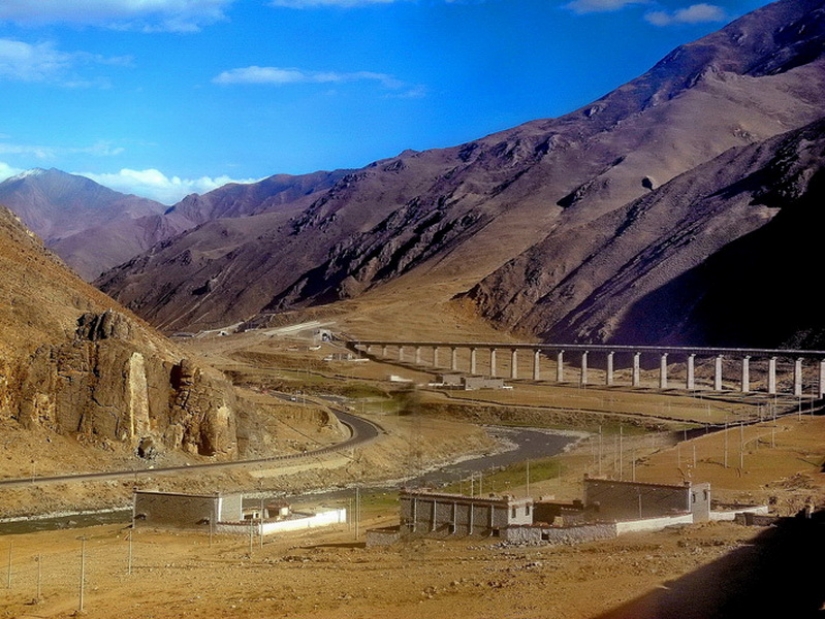
Although these trains stop, in fact it is just a passing point on single track railway. The station is fully automatic and is controlled from Xining, where the Central management of the entire road. No settlements nearby, which, however, did not prevent the Chinese to build a fairly large station, worthy of the station record.
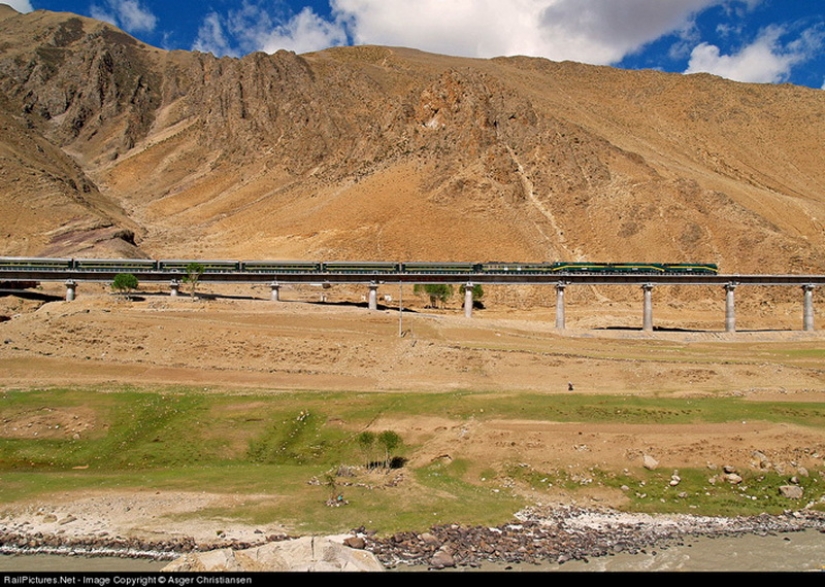
In most cases there is not even the doors open wagons. For an untrained person to be at a height where the atmospheric pressure is only about 35-40% of the standard at sea level, represents a health threat.
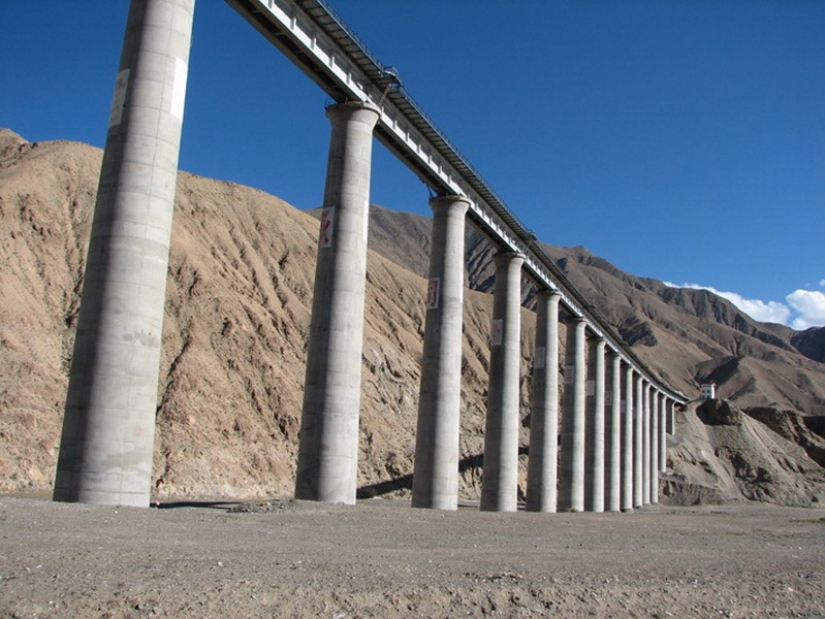
In order to travel through high mountain areas with their stunning landscapes brought to passengers only fun for the Qinghai-Tibet road was developed by a special rolling stock. American Corporation General Electric has designed for main line locomotives NJ2, modified for operation in high altitude conditions, with the capacity of 5100 HP each. Locomotives capable of speeds up to 120 km/h with the composition of 15 coaches. In permafrost zones have their speed limited to 100 km/h.
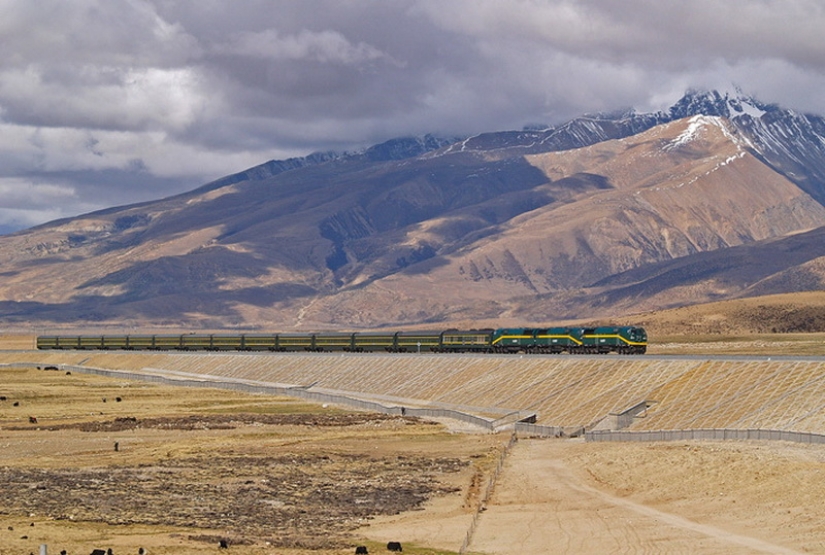
Cars for maintenance of the road was built in the Chinese plant of the canadian group Bombardier in the amount of 361 pieces (308 ordinary and 53 special tourist). They actually are hermetically sealed from the environment inside is maintained at a pressure of oxygen close to the standard.
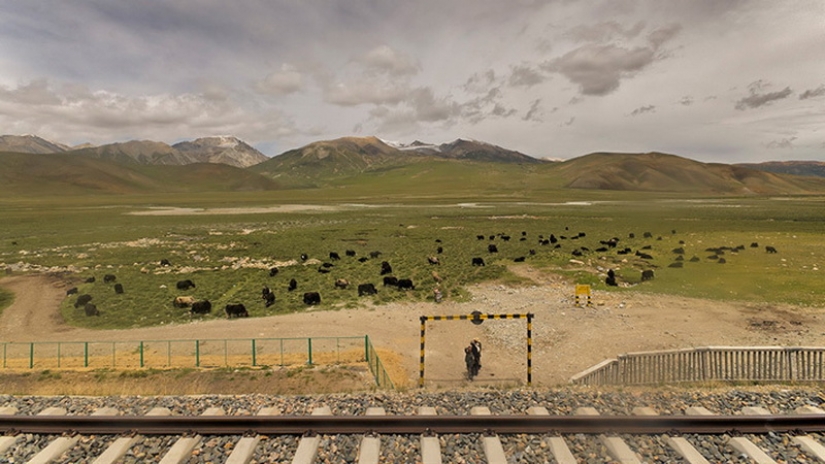
Despite this, bouts of altitude sickness caused by lack of oxygen, the passengers were wrong. To prevent every seat in cars equipped with individual oxygen tubes in the hospital sample. Tinted glass cars with a special coating to protect passengers from excessive solar radiation, again peculiar to the highlands.
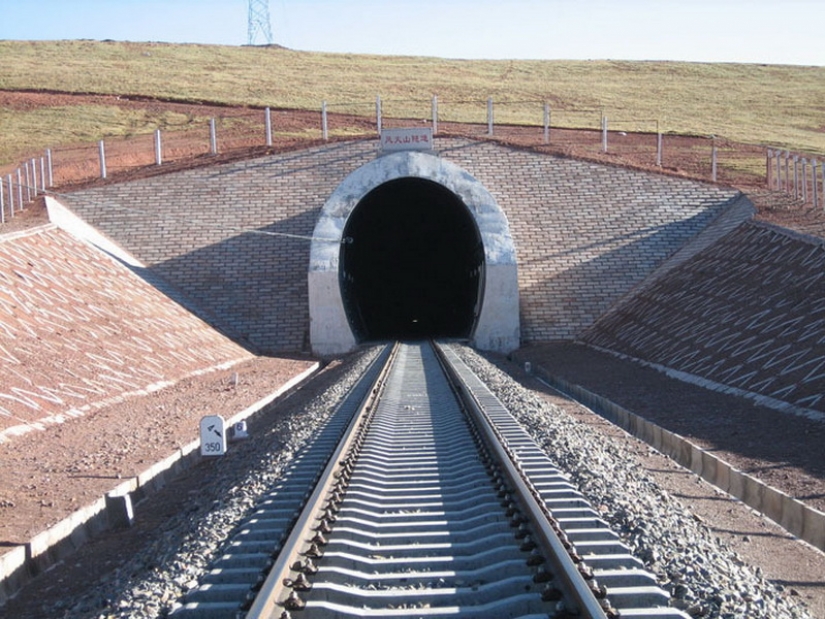
Standard cars are divided into habitual and us three classes of Seating, reserved seats and compartment. In addition, the trains have dining cars.
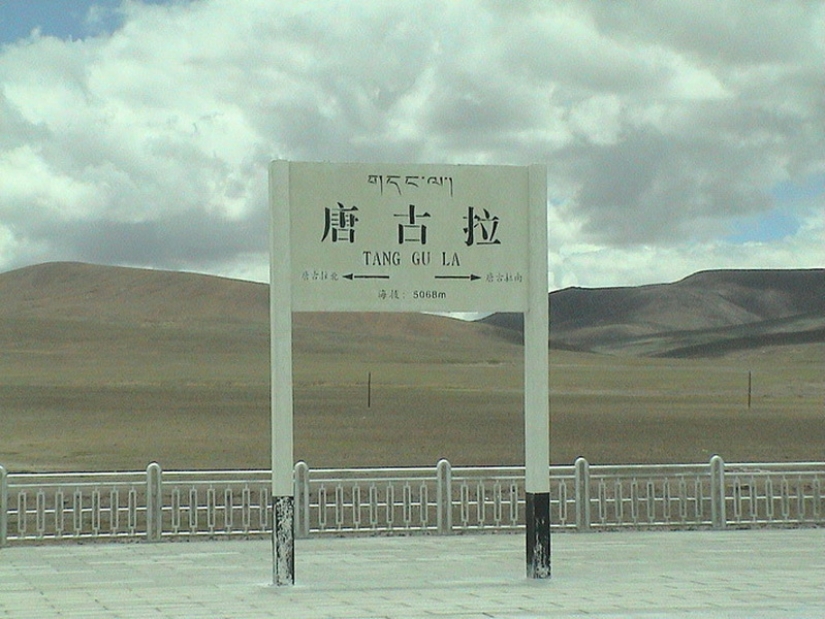
The throughput of the highway is eight pairs of passenger trains per day (excluding freight). Currently, Lhasa is connected by regular passenger traffic not only with the neighboring "regional" center of Xining, but also with the major cities — Beijing and Shanghai. In way Express, Beijing to Lhasa is 44 hours. The cost of tickets depending on the class is $ 125 (reserved seats) to $ 200 (coupe).
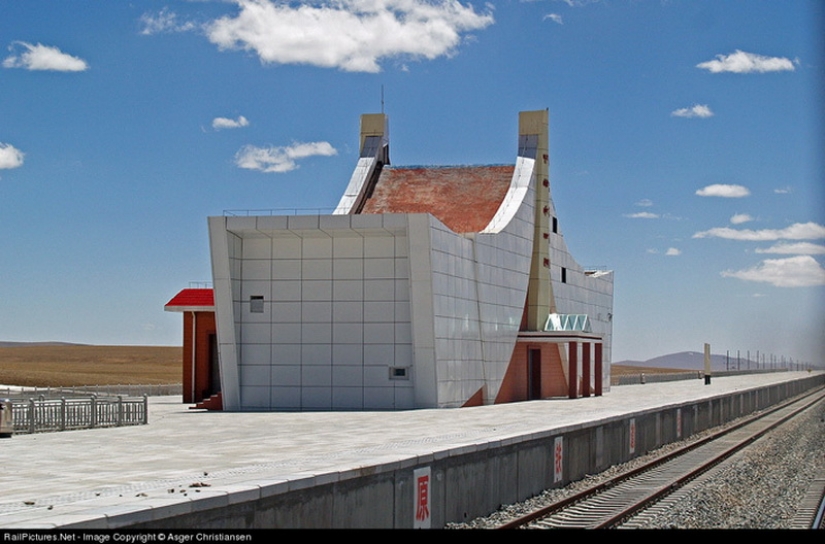
The construction of the Qinghai-Tibet railway began in 2001. About 20,000 workers, at the same time began laying rails from both endpoints (Golmud and Lhasa), coped with the responsible task of the party in just five years, spending $ 3,68 billion dollars. According to official figures, while no one was killed, despite long-term work in not the most comfortable conditions for this.
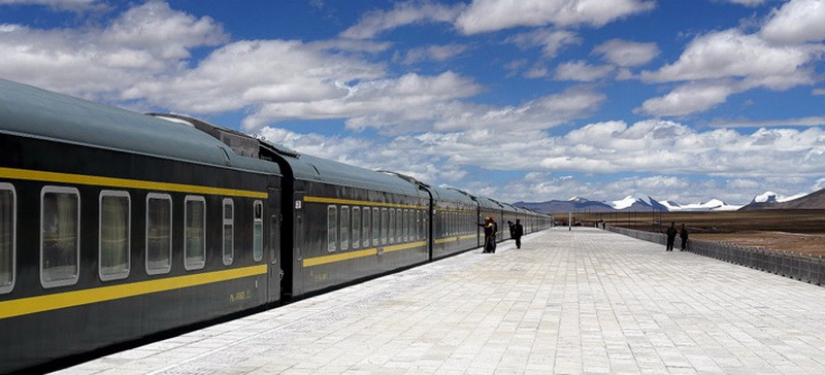
In seven years of operation, the road carried more than 63 million passengers and 300 million tons of cargo. Annual turnover has increased from 6.5 million people in 2006 when the pipeline was put into operation, up to 11 million people in 2012, the annual turnover increased from 25 million tons in 2006 to 56 million tons in 2012. It is already clear that the new railway greatly enhanced the economic development of Tibet and neighboring Qinghai province.
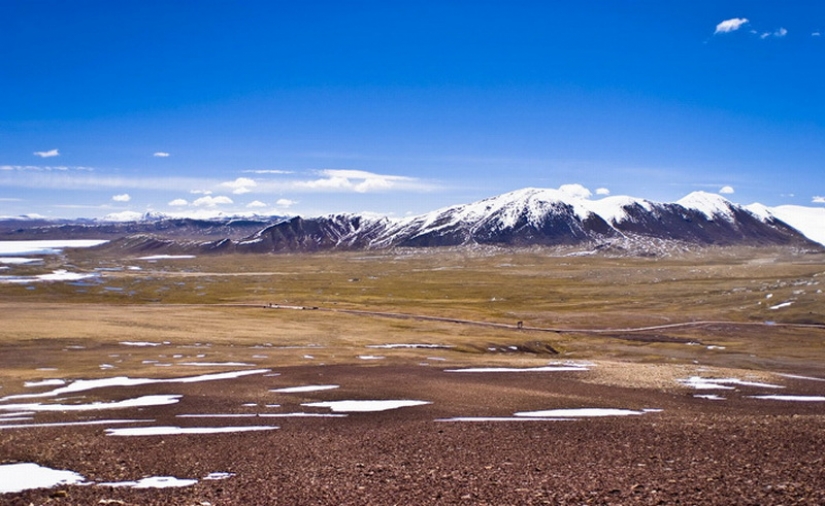
Substantially cheaper shipping of cargoes to Tibet, including especially valuable in the mountains of energy. A new impetus was given to the development and tourist industry, although still just like anyone to leave, for example, at the Beijing train to Lhasa will not work. To visit Tibet, the Chinese government, as before, requires special permission, without which the train you just don't go to jail.
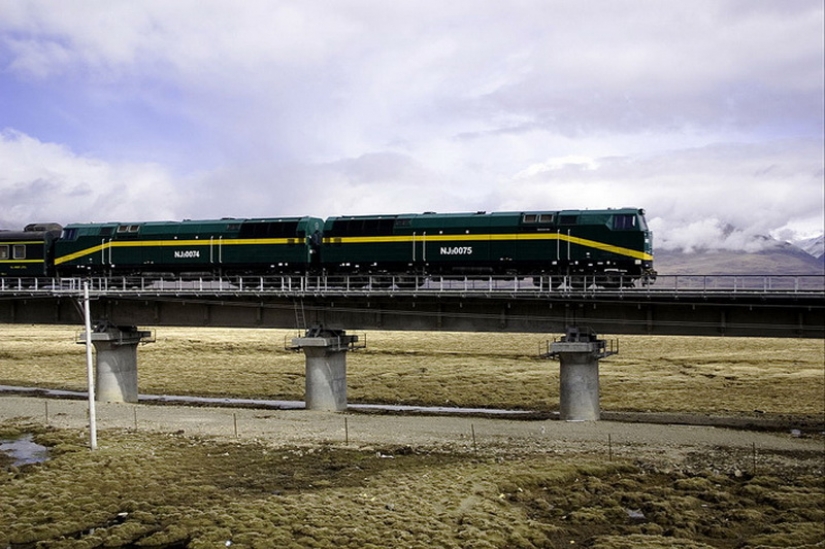
Skeptics believe the Qinghai-Tibet railway is just another phase in the gradual Chinese colonization, a kind of Autonomous region and the locomotive of the development of its natural resources. Geologists have already discovered in the highlands of Tibet, copper deposits, lead and zinc, raw materials, essential rapidly growing Chinese industry.
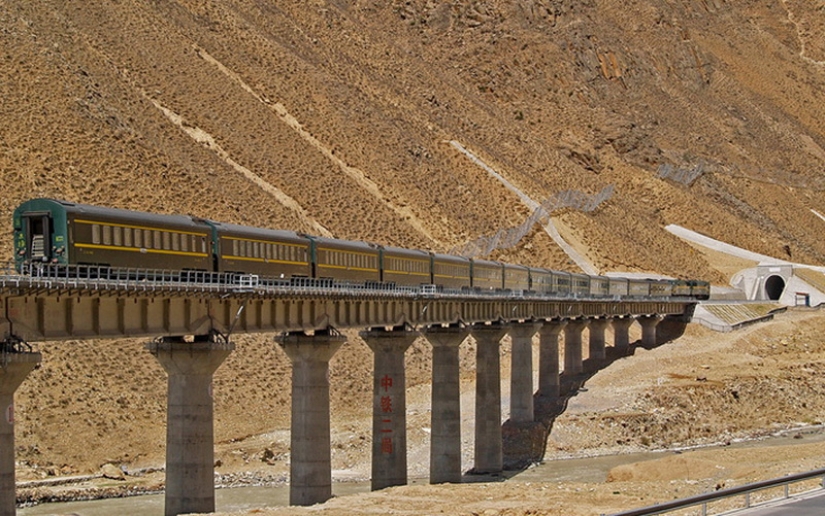
Environmentalists, of course, fear that the presence in the territory of the modern railway is a spur of the PRC government for the early exploitation of these deposits, with unpredictable consequences for the fragile ecosystem of the region.
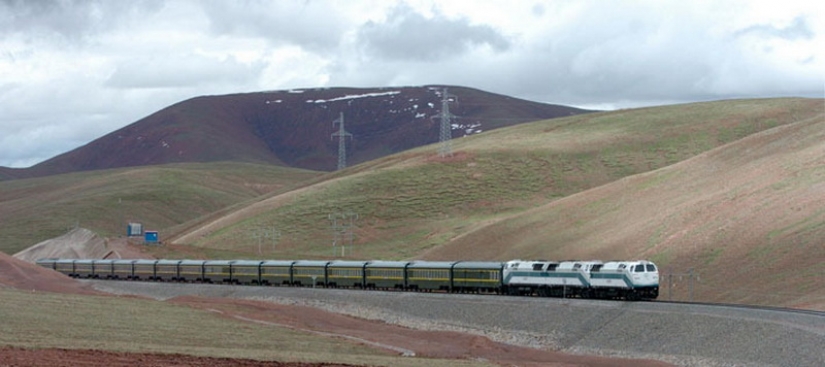
However, this is still just unsubstantiated fears. But it's hard to deny the popularity of the road among the inhabitants of Tibet, who received the ability to easily and quickly get to the highly developed Eastern regions of the country, especially among tourists, for whom the highway is a popular attraction, created with the typical Chinese tenacity, literally folding the mountains.
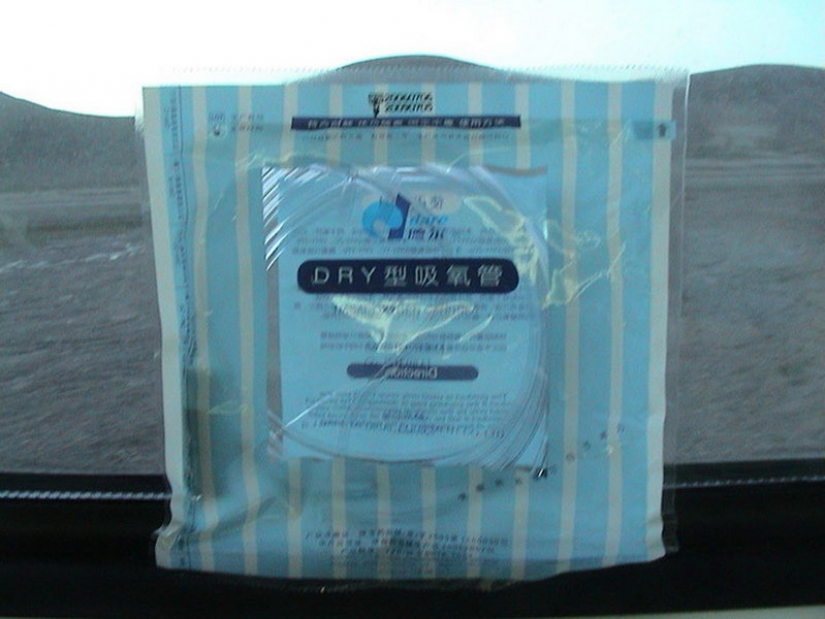
Keywords: Railroad | China | Construction | Tibet
Post News ArticleRecent articles

It's high time to admit that this whole hipster idea has gone too far. The concept has become so popular that even restaurants have ...

There is a perception that people only use 10% of their brain potential. But the heroes of our review, apparently, found a way to ...
Related articles

We are accustomed to the fact that on the packaging of tea, write "loose" and rarely think about what the word means. Meanwhile, ...

Human intervention in the affairs of nature is extremely rarely successful. Especially a lot of trouble was brought to the ...

The sea is still, you are a woman or a man, if you can hold in their hands an army of 70,000. Chinese Chin si could — she started ...

New Year's is a time to surprise and delight loved ones not only with gifts but also with a unique presentation of the holiday ...